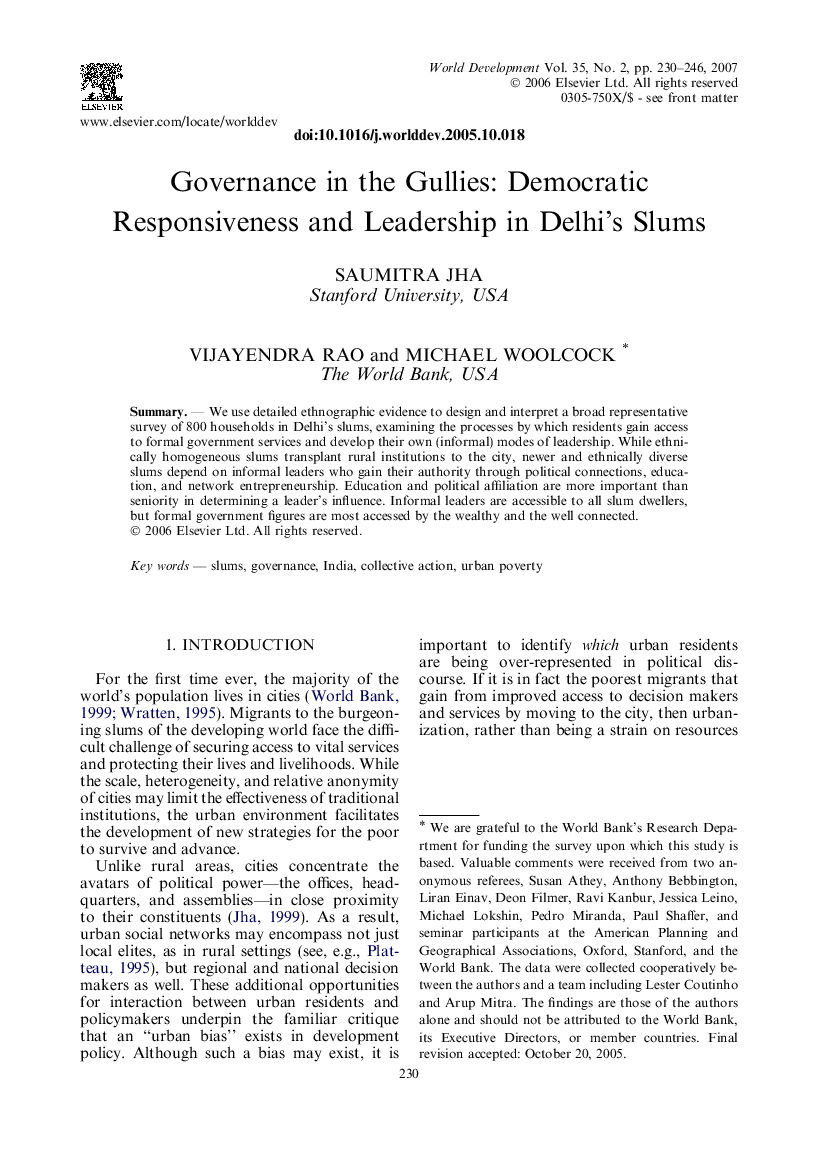| Article ID | Journal | Published Year | Pages | File Type |
|---|---|---|---|---|
| 991833 | World Development | 2007 | 17 Pages |
SummaryWe use detailed ethnographic evidence to design and interpret a broad representative survey of 800 households in Delhi’s slums, examining the processes by which residents gain access to formal government services and develop their own (informal) modes of leadership. While ethnically homogeneous slums transplant rural institutions to the city, newer and ethnically diverse slums depend on informal leaders who gain their authority through political connections, education, and network entrepreneurship. Education and political affiliation are more important than seniority in determining a leader’s influence. Informal leaders are accessible to all slum dwellers, but formal government figures are most accessed by the wealthy and the well connected.
